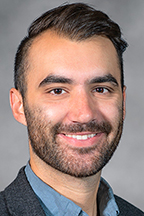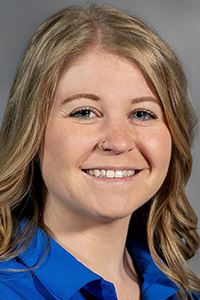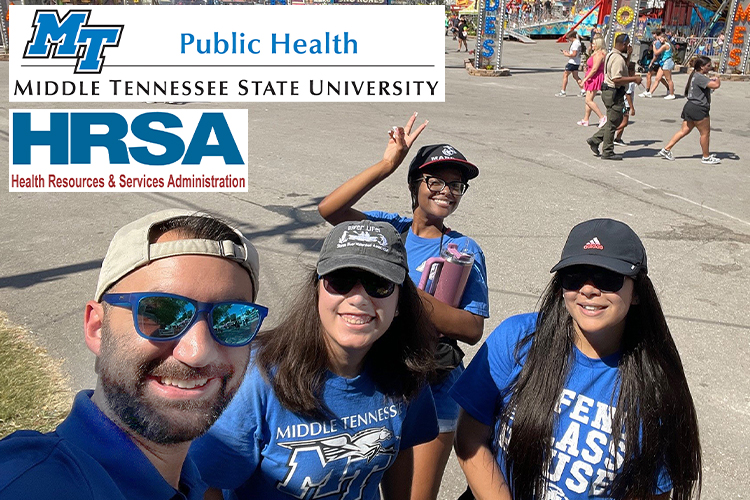MURFREESBORO, Tenn. — Middle Tennessee State University Public Health program students, in partnership with the MTSU Center for Health and Human Services, recently completed a three-year analysis of drug use stigma among people in rural communities.

The data collection project was federally funded by the Health Resources and Services Administration, or HRSA, as part of the Rural Communities Opioid Response Program, which funds a variety of grant programs each year to help with the prevention and treatment of opioid use disorder for people in rural areas.
For the third year in a row, student volunteers were tasked with asking a random selection of visitors at the Wilson County Fair-Tennessee State Fair, held each August, about their thoughts and perceptions regarding individuals who struggle with addiction.
Student volunteers who collected data during this year’s fair include Augustine Afriyie, Tess Swastek, .Pragya, Xaviera Gladden, Anakarina Lorenzana-DeWitt and Benjamin Antwi.

“Our focus has been on Wilson County, where we’ve been working closely with community partners such as the Drug-Free WilCo Coalition and Cedar Recovery addiction treatment provider, which is based in Mt. Juliet,” said Kahler Stone, associate professor of public health.
The comprehensive report on the stigma of drug addiction, which will be completed in early 2025, has given MTSU students hands-on opportunities to put their public health educations into action over the past few years.

“Data collected through this project, which is part of our broader efforts to prevent drug overdoses and support treatment and recovery for individuals who use drugs, has informed two community reports,” Stone explained.
“Their contributions have led to several research posters, presentations, and one master’s thesis, which is currently under review in a scholarly journal.”

Reports aim to measure stigma toward people who use drugs, with the goal of tracking changes over time and developing education that destigmatizes those who may struggle with addiction. While there has been progress made in addressing stigma, it is still a challenge within the community at large and within law enforcement.
“Stigma can impact how and if others seek support for themselves or someone they know. It can also impact what resources are made available from the government side based on elections and constituent interests,” said Swastek, who is pursuing a master’s in public health with a concentration in community health.
The perceived negative stigma can also deter those struggling with addiction from seeking much-needed medical care, said Afriyie, who’s pursuing a doctorate in human performance.
In addition to collecting valuable data, the annual project gives students the opportunity to gain field experience through community engagement.

“One of the parts of gathering information at the fair was interacting with individuals from different backgrounds and listening to their unique perspectives. It provided a chance to gather insights that may not have been accessible otherwise,” said .Pragya, a master’s in public health major. “Observing how enthusiastic people were to engage once they found out we were students from MTSU and exchanged stories made the task feel more impactful as it became evident that the data gathered could lead to change.”
The first two years of data reporting can be found on the Center for Health and Human Services website: https://chhs.mtsu.edu/publications/.
The Public Health Program in the College of Behavioral and Health Sciences at MTSU, particularly the Master of Public Health, emphasizes strong community engagement both in its curriculum and through research projects such as the data collection at the fair. To date, approximately 20 students have participated.
Visit https://www.mtsu.edu/program/public-health-b-s/ to learn more.
— Nancy DeGennaro (Nancy.DeGennaro@mtsu.edu)



COMMENTS ARE OFF THIS POST